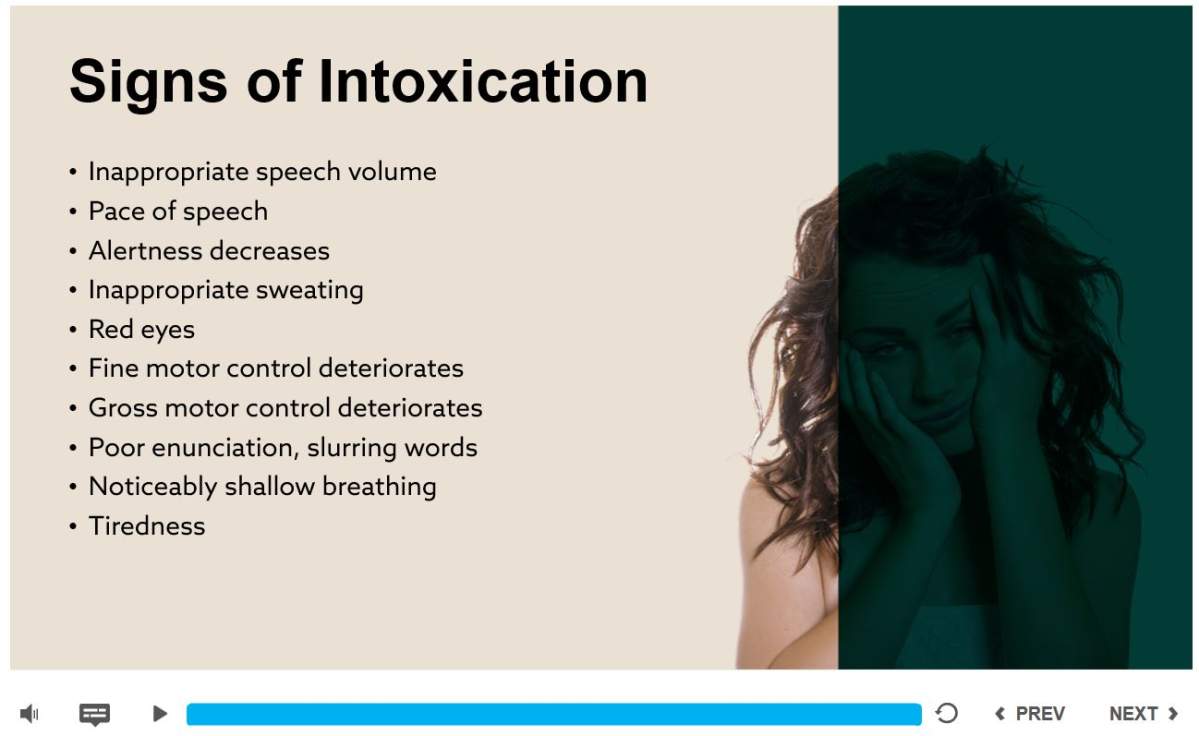Have you ever really looked at a driver’s licence? I mean really looked?

Hold it in your own hands — both hands — in a good light. Take your time.
Look at it, and feel it as well. Is it thicker than it should be?
Is the first letter on the serial number the first letter of the surname? Are the ninth and 10th digits the same as the last two digits of the year of birth? What about the raised, laser-engraved secondary photo that ought to be in the lower right-hand corner?
And yes, all that will be on the test, if you want a job working in a cannabis store in Ontario.
The CannSell course is loosely based on server training courses for alcohol, explains Nick Pateras of Lift & Co., which developed the course with Mothers Against Drunk Driving. The online course, which qualifies people to work in cannabis retail in Ontario, takes about four hours to complete and costs $56.
“While there are some overlaps, there are some pretty big differences,” Pateras explains. “How you store the product, how you actually engage with a customer who doesn’t know about cannabis.”
You can take the exam twice, and get at least 80 per cent in one of the attempts to pass the course. If you fail both exams, you have to pay for the course again to retry.

Store workers aren’t supposed to sell to minors, which should be straightforward given the detailed scrutiny of the photo ID of anyone who looks under 25.
But they’re also not supposed to sell to anyone who’s impaired, which is sensible in theory but quite challenging in practice. Here’s what to look for if you’re doing things by the book:
The problem, as Pateras concedes (and as critics have pointed out), is that it can be hard to tell if people are stoned.
“It’s not easy to spot,” he says.

Get daily National news
Another issue is that customers might be unfairly denied service if they fumble with money at the cash register, for example. In reality, they might be nervous, have naturally poor co-ordination or perhaps a health issue.
“Certain cues or identifiers could be caused by a medical condition,” Pateras says.
“You have to draw a very fine line, and be super-cautious and say that it’s not one of these factors in isolation that will cause someone to deny a sale, but one cue is key to looking a little deeper and see several. If you see several, you may have a right to deny a sale, but it’s not one thing in isolation.”

The course avoids committing itself to predicting that a specific type of cannabis will have a specific effect: that indicas are relaxing, for example. The problem is that there’s no real research to back these associations up — in part because prohibition itself has made cannabis hard to study.
The course designers’ compromise is to point out that people often say they experience different effects from different species and strains, but doesn’t say that that’s necessarily true (or not).
“You will see a lot of brands and companies say that sativa will give you a certain effect. It’s caricatured as being the uplifting, creative plant type, where indica is the opposite. Sativa and indica have nothing to do with what you actually feel.”
“We wanted to make it clear – yes, this is how some people commonly say it makes them feel, but that’s not grounded in absolute fact.”

We questioned a few decisions.
A chunk of the course content deals with bureaucratic details of running a cannabis store, like requirements for the manager to retain certain records for prescribed periods, or what areas the security cameras are required to look at. (And yes, it is on the test.)
A store manager might have to know these things, but is it really necessary for front-line sales staff to learn them?
There’s no harm in it, Pateras argues.
“With four hours of content, if a portion of that is above the pay grade of someone in the store, I don’t think it harms them to still understand how the store should be operating.”
Also, we wondered if the standard start-low-go-slow advice about edible products — like the oils and gel caps that have been available since legalization — might have been a good thing to include. They can pack quite a lot of THC in a small package, and new customers might need a bit of guidance about how to start to experiment cautiously.
“The reason we made the decision not to include that in CannSell Standard for now is that there’s a big window of variability in how people can feel those effects,” Pateras says.
“We’re still looking at it to see if we feel confident about putting it in.”
Patrick Cain is cannabis reporter for Global News and the editor of the Cannabis IQ newsletter.









Comments
Want to discuss? Please read our Commenting Policy first.